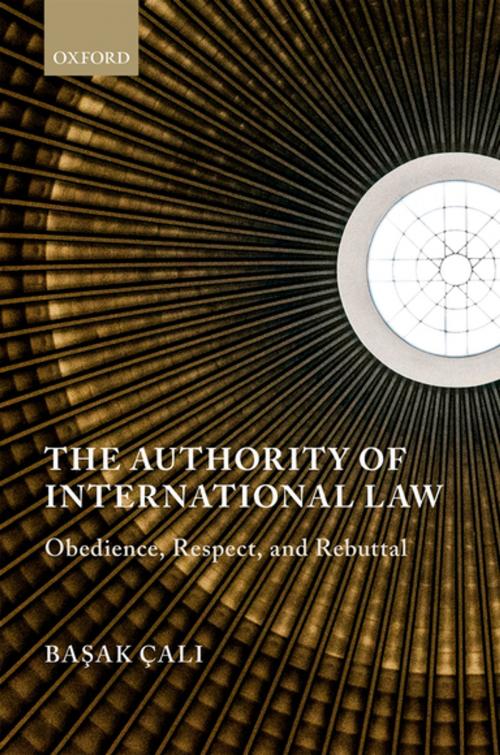The Authority of International Law
Obedience, Respect, and Rebuttal
Nonfiction, Reference & Language, Law, International| Author: | Basak Çali | ISBN: | 9780191508189 |
| Publisher: | OUP Oxford | Publication: | October 8, 2015 |
| Imprint: | OUP Oxford | Language: | English |
| Author: | Basak Çali |
| ISBN: | 9780191508189 |
| Publisher: | OUP Oxford |
| Publication: | October 8, 2015 |
| Imprint: | OUP Oxford |
| Language: | English |
The question of the authority of international law over domestic authorities and the duties of state officials to international law are fundamental concerns in international law theory and practice. The Authority of International Law: Obedience, Respect, and Rebuttal addresses these concerns by reviewing the present accounts of authority in international law constructing the authority of international law as imposing three different layers of duties on domestic officials: the duty to obey, the duty to respect and the duty to rebut, carefully setting out the duties owed by domestic political and legal authorities towards international law. This book provides an original account of the authority of international law, one that is not tied to prior state consent or domestic constitutional frameworks. It offers a nuance account, arguing that whether or not international law is obeyed within any given situation depends on the type of duty it imposes on the state, and that duties normative force. There is no black and white framework in which international law always trumps domestic law or vice versa. Instead, Cali presents a realistic account of when international law has absolute authority, and when it can afford a margin of appreciation to states. The Authority of International Law: Obedience, Respect, and Rebuttal contributes to existing debates on the authority of international law through considering the gap between consent-based jurisprudential theories of authority and self-interest and identity-based theories of compliance; looking at the importation of often highly demanding concepts of authority and legitimacy from standard domestic political and legal theory, to identify the shortcomings of the authority of international law; and by considering monism, dualism, and normative pluralism as theories for addressing authority competition between domestic legal orders and international law.
The question of the authority of international law over domestic authorities and the duties of state officials to international law are fundamental concerns in international law theory and practice. The Authority of International Law: Obedience, Respect, and Rebuttal addresses these concerns by reviewing the present accounts of authority in international law constructing the authority of international law as imposing three different layers of duties on domestic officials: the duty to obey, the duty to respect and the duty to rebut, carefully setting out the duties owed by domestic political and legal authorities towards international law. This book provides an original account of the authority of international law, one that is not tied to prior state consent or domestic constitutional frameworks. It offers a nuance account, arguing that whether or not international law is obeyed within any given situation depends on the type of duty it imposes on the state, and that duties normative force. There is no black and white framework in which international law always trumps domestic law or vice versa. Instead, Cali presents a realistic account of when international law has absolute authority, and when it can afford a margin of appreciation to states. The Authority of International Law: Obedience, Respect, and Rebuttal contributes to existing debates on the authority of international law through considering the gap between consent-based jurisprudential theories of authority and self-interest and identity-based theories of compliance; looking at the importation of often highly demanding concepts of authority and legitimacy from standard domestic political and legal theory, to identify the shortcomings of the authority of international law; and by considering monism, dualism, and normative pluralism as theories for addressing authority competition between domestic legal orders and international law.















